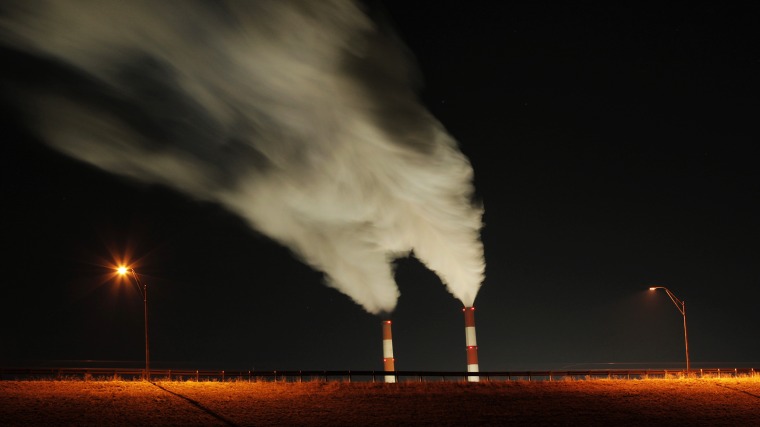The White House issued a report Tuesday warning that the United States could face billions of dollars in added economic costs if it delays action to curb greenhouse gas emissions linked to climate change. According to the report, each decade of delay will make it 40 percent more expensive to eventually reach the identical global climate target. [...] The Council of Economic Advisers based its findings on 16 studies that incorporated a range of economic models. It concluded that a global temperature rise of 3 degrees Celsius (5.4 degrees Fahrenheit) as opposed to a rise of 2 degrees Celsius (3.6 degrees F) "could increase economic damages by approximately 0.9 percent of global output. To put this percentage in perspective, 0.9 percent of estimated 2014 U.S. Gross Domestic Product (GDP) is approximately $150 billion."
The climate crisis isn't just scary; it's expensive
If Republicans don't like spending money, perhaps it's time to remind the GOP that inaction on the climate crisis would cost a fortune.

Attempts to debate climate change on moral terms have largely failed; Republican policymakers have heard the arguments and they remain unmoved. So too have related arguments -- those who believe in climate science have raised related warnings about national security, public health, and environmental conditions. In each instance, GOP policymakers have said they just don't care.
For the White House, these attitudes have caused a rhetorical shift of sorts. If Republicans don't like spending money, perhaps it's time to remind the GOP that inaction on the climate crisis would be very expensive. The Washington Post reported today on a new analysis from President Obama's Council of Economic Advisers.
Hundreds of billions of dollars here, hundreds of billions of dollars there, pretty soon we're talking about real money.
Jason Furman, chairman of the Council of Economic Advisors, told reporters yesterday, "If anything, we understate the cost of delay."
Rebecca Leber added that the White House's latest approach "helps frame climate action as taking out insurance today against the worst of global warming's impacts, just like a responsible homeowner would buy insurance. Putting numbers to the cost of inaction takes aim directly at a classic Republican rebuttal -- that it's better to wait for the so-called 'unsettled science' to settle on exact timing and magnitude of global warming's consequences."
As for the actual GOP response, Rep. Ed Whitfield (R-Ky.), chair of a House Energy Committee's panel, wasn't impressed. "Today's report reads more like a blueprint to create jobs in China," he said in a statement.
Let's say the White House's new pitch is a work in progress.
If the policy debate surrounding the climate crisis were a little more serious, Republicans would have to explain why they're willing to take such a radical gamble, but in the meantime, we appear to be stuck with lazy talking points like Whitfield's.